
Header image courtesy of Joe Schaeffer Photography

By Andrew Daly
[email protected]
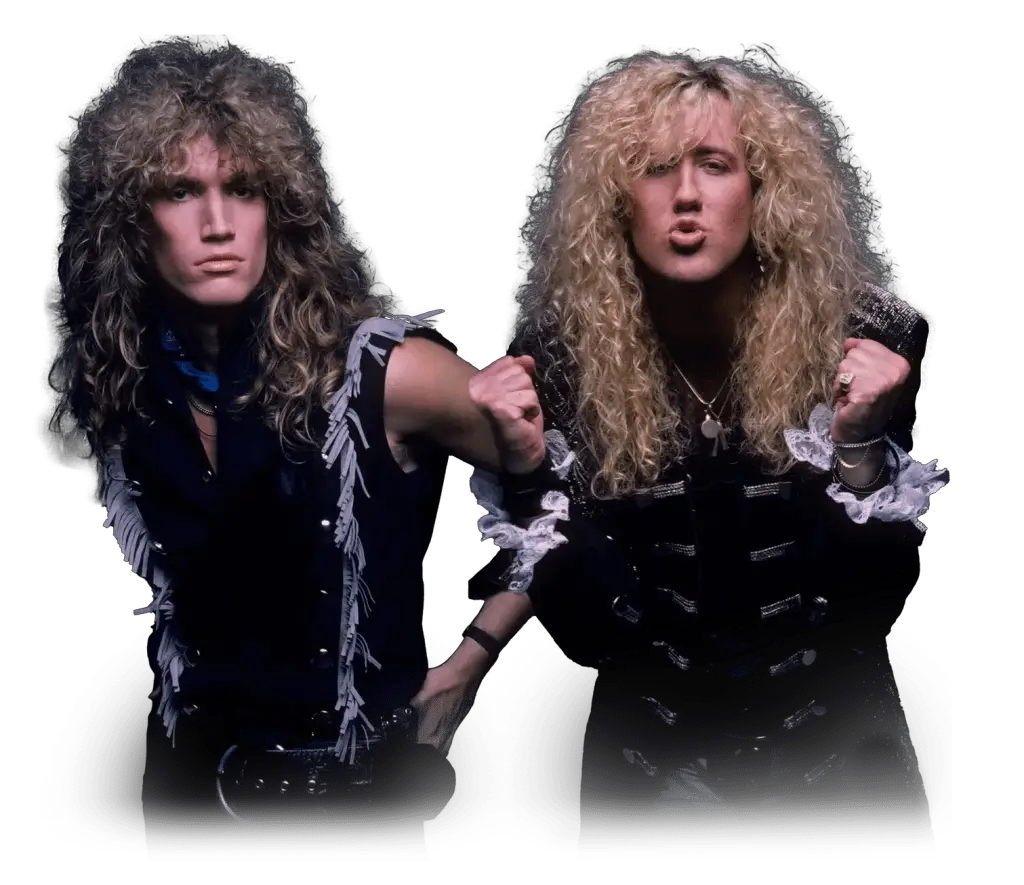
For fans of Black N’ Blue, as well as all things Tommy Thayer, and Jaime St. James, the news of the recently unearthed Lost Tapes garnered both fanfare and excitement.
More importantly, the news bred curiosity. A curiosity as to the origins of these Lost Tapes. Where did they come from? How and why were they recorded? And most importantly, what do they sound like? Context is everything, especially when we’re talking about long-lost recordings, from seminal, and still very active recording and touring artists such as Tommy Thayer, and Jaime St. James.
Regardless of if you’re a fan of Black N’ Blue or not, The Lost Tapes represent a snapshot in time. Moreso, they represent the end of an era, and the beginning, or depending on how you look at it, the dissolution of another.
Recently, I dug in with Black N’ Blue’s esteemed frontman, Jaime St. James, where we recount the unearthing of The Lost Tapes, as well as the origins of the recordings, Gene Simmons’ involvement, why Jaime never went back to recordings in subsequent ventures, he future of Black N’ Blue, and a whole more.
The Lost Tapes represent something truly special, as such, I recommend you head over to the Thayer-St. James webpage, and grab your copy of history before it’s gone, as this release is a one-time-only shot to feat on one of the 1980s greatest bands.
Andrew:
Thanks for setting aside some time, Jaime. I wanted to dig right into The Lost Tapes. I know Tommy played with Black N’ Blue on the most recent KISS Kruise. Did that ignite the flames of nostalgia in regards to these recordings?
Jaime:
Well, not really. What happened was as Tommy moved, he had these masters in an attic space, and he just called me up one day and said, “Hey, I’ve got a bunch of Black N’ Blue stuff. Do you want it? And I said, “Sure, send me whatever you’ve got.” I didn’t even know what it was gonna be, because it was just a bunch of boxes and stuff. But anyway, when I saw this two-inch master tape, I remembered this recording, and I remembered there was good stuff on there. So I pulled out an old cassette, and listened to a couple of the songs – I didn’t have them all – but after hearing them, I just called Tommy and said, “Dude, we should release this. We should release this stuff” – it was never released – “because it’s just too good.” And after he listened to it, he said, “I agree.” So it really started there. I mean, I’m in touch with Tommy all the time. We’re good friends, and we have been since we were like seventeen or eighteen years old. With this, it’s just something that he reminded me of it when he sent it to me. I thought, “What are we doing sitting on this? These are great songs.” They were recorded really well in ’88 on two-inch analog tapes, you know, the way you used to do great recordings.
Andrew:
Tommy had mentioned to me that once you unearthed the tapes, the condition was an issue, right?
Jaime:
Yeah, the two-inch tape was not in great shape. I said to Tommy, “Thank God we have a mix,” because there was a quarter-inch tape in that box, and sometimes it’s not even easy to find a two-inch machine in the studio these days. Really, they don’t even have them anymore, they’re very rare. So, I took the quarter-inch tape to a place that can download stuff from all kinds of different formats into like a decent quality wavfile that you can use, but unfortunately, the tape was dead. It sounded all distorted and fogged-out because it had been stored in the attic space too long. What saved it was Tommy, after I told him that, he looked through his stuff, and he had a couple of DAT tapes – digital audio tapes – those little tiny cassette-looking things, well, that’s pretty much what saved us. That and a cassette that the Tommy also had, because my cassette, which had the last song we recorded, “Work It,” was dead and warbly just like that quarter-inch tape. Thankfully, Tommy had a cassette that he never played, and so boom, we had it.
So we just had to do a lot of work on remastering, but it was funny the cassette sounded as good as the DAT but ran slow for some reason. That was a nightmare. At that speed, my voice sounded so weird, I was like, “Who’s that? I don’t sound like that. I never did.” I didn’t recognize myself, but everybody said, “That’s impossible. Are you sure? How could the tape be running slow?” I said, “I’m telling you it is. It’s not right.” But anyway, it all worked out, but we jumped through a lot of hoops, and it took some time, but we got it all together.
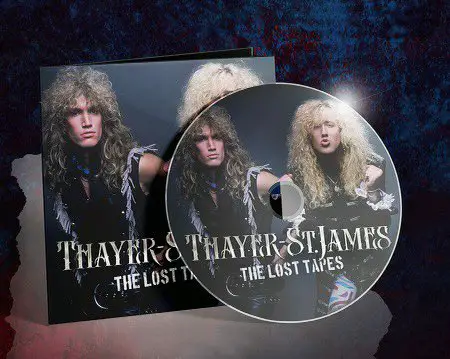
Andrew:
As far as mastering, were there any overdubs, or is what we hear all original?
Jaime:
No, you’re hearing it exactly how it was. The only thing that was overdubbed was me playing some cymbals because we needed some brighter symbols on it. So I played cymbals on top of the recording, and a little bit of percussion too. Other than that, this is exactly how it was in ’88, just remastered, and brought up to date. These are great songs, and it sounds really good.
Andrew:
Going back to the original recording, I assume this was you and Tommy working on tracks for what might have been Black N’ Blue’s follow-up to In Heat, had you been given the chance. Is it only you two on the recording?
Jaime:
It’s just me and Tommy. Pat Regan, who was the engineer and producer, played some keyboard stuff, like some synth-bass. There are a tiny bit of keyboards in one of the songs, but not much. There’s nobody from Black N’ Blue on the recording aside from me and Tommy though.
Andrew:
What do you recall about the writing of these tracks, and the overall vibe surrounding that time period?
Jaime:
Well, I do know that it was when we were dropped from Geffen, so Tommy and me, we basically said, “We’ve got to write some great stuff here because we’ve got to try to get another deal.” And so we were just writing like we normally do, but really putting a lot of extra effort into it. The end result was that we did a really strong recording. It sounds as good as any record, actually, it sounds better than a lot of records do these days. It was thought of as a “demo,” but really, it was album quality. We were really going for it. I do remember that. I mean, it was always fun working with Tommy Thayer, because he and I, we work well together. It was a lot of fun. I remember that.

Andrew:
Nasty, Nasty, and In Heat were produced by Gene Simmons. Was he involved in the recording, and was there any talk of you signing with his Simmons Records label at the time?
Andrew:
So actually, at that time, Gene Simmons was kind of acting as our manager. Like you said, he was very involved with us. Gene was one that initially fronted the money for these recordings, and he was going to maybe put it on Simmons Records, or try to get us a fair deal somewhere else because he really believed in the band. It would have continued on that way, but Tommy ended up deciding he just didn’t want to do it anymore and wanted to go try other things. So, he essentially kind of quit, and that left me in a spot where I just said, “Okay, that’s it. It’s done.” In the wake of that, all these things just got shelved. Gene loved these songs a lot though, he thought they were great. And of course, since that time, Gene has given us full rights to these recordings, where he said, “You guys can have them. They’re yours. It’s all yours.” But me and Tommy, we wrote everything, but Gene did he put some finances into it.
Andrew:
So Tommy ultimately left before you guys could shop these around to other major labels then?
Jaime:
Yeah, Tommy quit before we could do that. Tommy just kind of wanted to do other things. He talked to me about it, and I said, “You know what? I understand, man. It’s been a long run here. We’re fighting for a new deal, and it’s not easy.” So with him doing that, I just said, “Okay, I’m done. I’m gonna do my own thing too.” It was kind of it was tough for me, but it’s the way it was. That’s why these things just kind of sat and never got used.
Andrew:
You formed Freight Train Jane next, right? Why didn’t you use these recordings there?
Jaime:
Yeah, you know, I didn’t. I just wanted to have a fresh start. So, with Freight Train Jane, that was with Tommy Bolan from Warlock. We were writing new songs, and those songs really had a different sound. It was still my voice, and my influence on the writing, so it’s gonna sound like me, but I thought it was different enough to where I just wanted to go and do my own thing. With that, I didn’t think about these tracks for that reason. Thinking back, that was around 1990, and at first, I thought about bringing some of the songs in, and I think we might have played one of them live, but we didn’t play very many live shows. We dabbled in it, but we never recorded them, and we never used them. I just really wanted a fresh start there, so I decided against it.
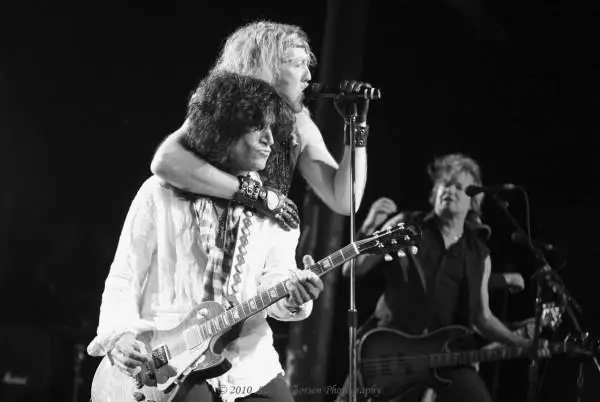
Andrew:
Pushing forward, did you ever consider revisiting these tracks for the album you did with Warrant, Born Again, or Black N’ Blue’s last album, Hell Yeah!?
Jaime:
Oddly enough, no. With Warrant, I was on a songwriting kick with those guys, and I just was writing new stuff. I didn’t even think about it at that point. By that time, I had been with Warrant since 2004, and we were really in a groove. And with the Hell Yeah! record, we were doing other things with writing, so I just kind of got caught up in what we were doing at the time. Honestly, These songs were so far on the back burner at that point, I didn’t even really think about them. I didn’t want to rehash them. I just thought well, “These will never see the light of day.” But by Tommy moving, that’s what sparked it, and I’m glad it happened
Andrew:
So far, the album is on CD only. I’ve got my copy, and it’s fantastic, Jaime. With that being said, are guys eventually going to put this on iTunes, Spotify, or anywhere else?
Jaime:
It’s going to be a CD-only release. There’s really no sense in putting it on any other platforms, and there’s no plan with that at all. You know, and I don’t think it’d be fair to people that went and bought this special release, so we were just going to leave it like this. Really, it’s for the people that really want it, and loved our music, and they’re going to enjoy it. I believe the songs are strong. It sounds excellent. As of now, there are no plans on releasing it on any other format.
Andrew:
If Black N’ Blue had hung in there, do you feel that these songs represent the logical progression of the band?
Jaime:
Well, this is what Tommy and I were doing without any input from anybody else. Gene [Simmons] came down and heard the songs though, and he loved them. I remember that he heard the song “American Man,” and he said, “Oh my God, that is great.” But, other than that, there was no influence in any other way. If we would have gotten another deal, we probably would have gotten a producer, which could have been Gene again, or it could have been somebody else. Maybe things might have turned a little bit different, but it’s hard to say. I don’t know if it’s the direction Black N’ Blue might have taken, because the other guys weren’t in the studio with us, it’s just what Tommy and I had started coming up out of our two heads immediately. But you know, if you think about it, even if we would have gotten a deal, at some point, everything was going to crash anyway in the 90s. So, really, how far could it ever have gotten? We would have ended up on the shelf with everyone else anyway. [Laughs].
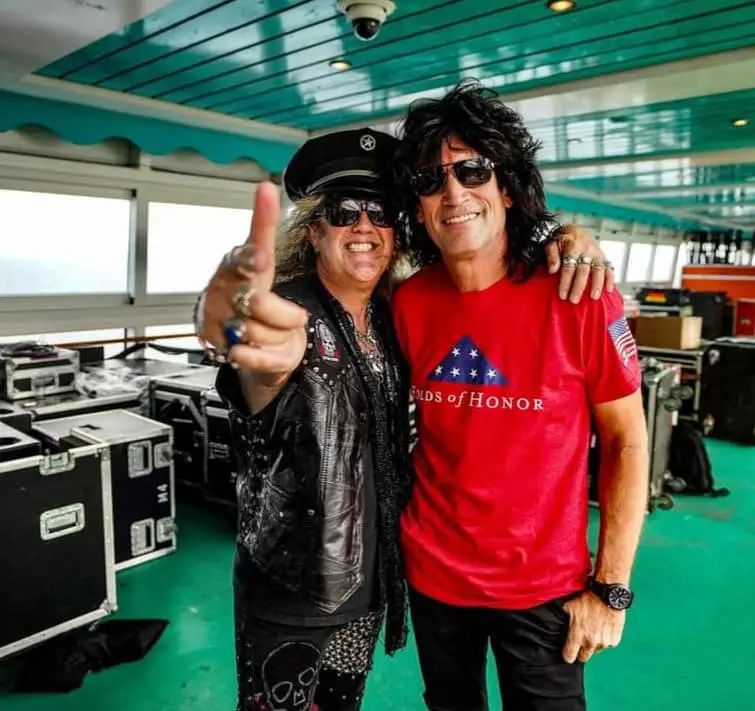
Andrew:
Well, if anything, The Lost Tapes is an indicator of the great partnership that you and Tommy had. To that end, I know you once told me that you don’t want to make another Black N’ Blue record without Tommy Thayer. Does that still hold true?
Jaime:
Yeah, pretty much. I don’t see any reason to do it. I love Black N’ Blue as it is now, and I love playing the music. We still do live shows, and that is a blast, but to do a record, that’s a whole different animal. Also, it’s really a struggle to do a record these days anyway. At the end of the day, if I am doing a record, and it’s gonna be Black N’ Blue, it needs to be Tommy and me. Listen, I know Tommy, he’s very busy with KISS, he’s got a lot of things going on. I’m sure that he and I could write some songs if we wanted to and do something awesome with it, but he’s not interested in getting involved with it on a hardcore level, and that’s cool. Tommy, he’s got a lot going on in his life, and I totally respect that. But no, I wouldn’t do a Black N’ Blue record without his input on songwriting.
Now, writing songs, that could happen, but doing a Black N’ Blue record, with Tommy, I don’t see it. Honestly, the way we’ve done this, by putting it on a webpage and selling it this way, is worthwhile for us, it’s a good way to go. Sure, we could have tried to give the songs to some kind of a label, and maybe they could have given us a few dollars, but then you’d never hear from them again. To us, that was no way to make something. If you’re going to put a lot of effort into anything, if you want something to be really good, and you want it to be a great product, you can’t do it for nothing.
Andrew:
With the chemistry still apparent, even if you don’t make another Black N’ Blue record, do you see Tommy playing more shows with Black N’ Blue once KISS finally reaches the end of its proverbial road?
Jaime:
I think it’s much more likely that Tommy and I do something together musically in the future than him being in Black N’ Blue. I don’t think he has an interest in being in Black N’ Blue. Plus, we have two great guitarists in the band right now who play very well live. We’ve really got things dialed in with Doug Rappoport and Brandon Cook. Those guys are great, and I love playing with them live. So no, with Tommy being in Black N’ Blue again, I doubt would happen. But him and I working together on something, I think it’s a possibility. We have to ask Tommy for sure, but I’m open. I love him, I love working with him, and I know he feels the same about me. So I mean, I think it’s more of a possibility that he and I work together on something.
Andrew:
Last one, Jamie. What’s next for Black N’ Blue as we move forward?
Jaime:
You know, Black N’ Blue is just going to play the best shows that come our way. We don’t do a lot of club dates, and people always say, “Why don’t you come to my city?” Well, somebody’s got to pay us and somebody’s gotta want us. It’s not easy for a band like Black N’ Blue to get a lot of gigs, but when the good ones come along, we play. That said, we have some amazing stuff on the books, but I can’t talk about it just yet, because I can’t say anything about it until the promoter confirms. So, we will still be playing, and I think that’s pretty much what’s in the cards for Black N’ Blue in the future. We just plan to do great live shows when they come along. And I sure hope that if we come anywhere near you, you’ll come and see us, because we’re good.
I will say one last thing, I can sing every single Black N’ Blue song in the original key – any of them – I have no problem with it. I know there’s a lot of trouble out there for vocalists when they get older. Not me. You know, Tommy told me at the last KISS Kruise, “St., you’re amazing. How do you still knock those songs out like you did back in the day?” Tommy is not one to bullshit, he’s straightforward, so he says that because he knows I can sing the stuff in exactly the same key. I don’t need any help. So, I cross my fingers that I can keep that up. You know, when I turned sixty, I thought that was where I was gonna hit the wall, but here I am, I’m like, “Where the wall, man?” [Laughs]. I hope I never see that wall.
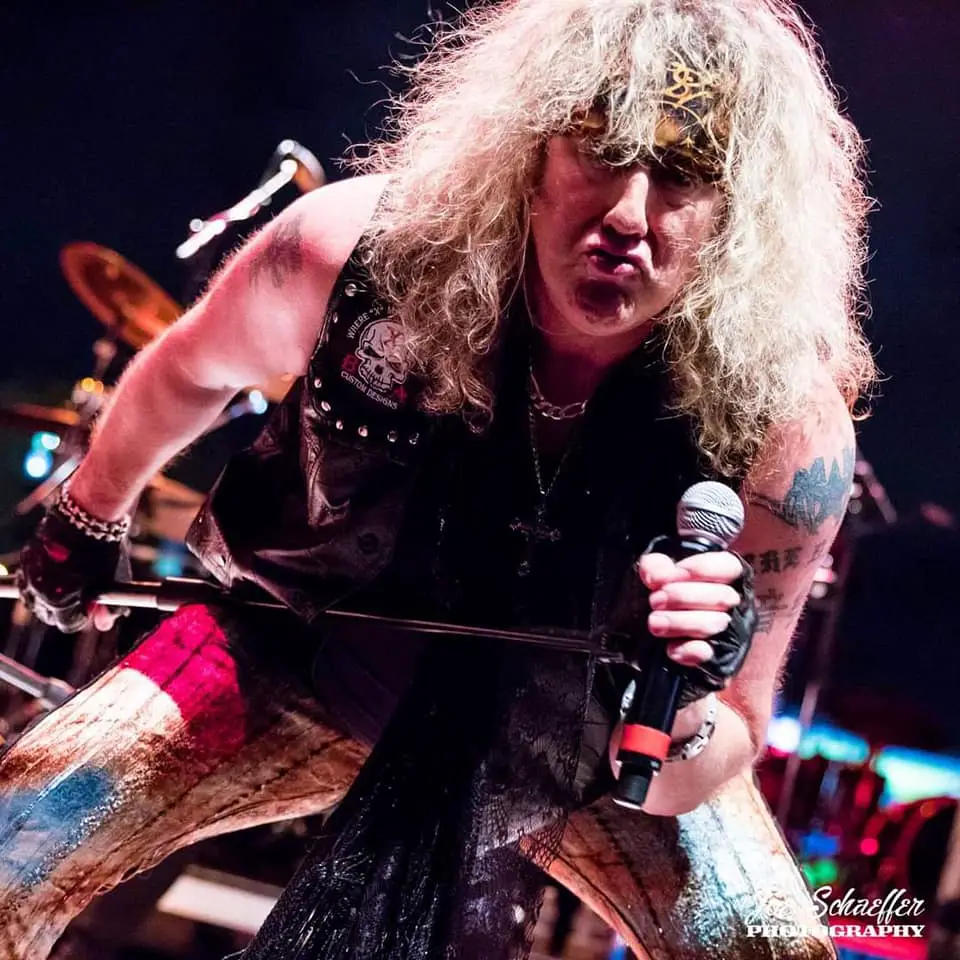
– Andrew Daly (@vwmusicrocks) is the Editor-in-Chief for www.vwmusicrocks.com and may be reached at [email protected]
